“ It was very powerful to hear where research has progressed to and what might be over the horizon. As someone with very little scientific knowledge, it was good to get a sense of the research story free from the inevitably bland and generalised product one gets from the general media
A member of the public, Cambridge, commenting on LifeLab 2018
The last weekend of September saw one of the world’s largest science events come to Cambridge and Peterborough in the form of LifeLab, one of 55 European Commission funded projects taking place for European Researchers’ Night, a Europe-wide public event dedicated to celebrating popular science and fun learning.
Over 150 researchers from a consortium of Cambridge institutions (Babraham Institute, EMBL’s European Bioinformatics Institute, the MRC Laboratory of Molecular Biology, the University of Cambridge and the Wellcome Sanger Institute), coordinated by Wellcome Genome Campus Public Engagement, joined forces to share their enthusiasm for their fields in informal and fun settings. 15 events were held at 12 venues in Cambridge and Peterborough over the two days, attracting over 3,500 members of the public.
And the results were overwhelmingly positive! People from all walks of life were intrigued and delighted by the events for different age groups and tastes, from talks to a comedy night, and walking tours to hands-on experiments involving lab coats and gloves!
In local shopping centres – Grafton Centre and Grand Arcade (Cambridge) and Queensgate (Peterborough) – there were science stalls where some great conversations were had with people who left their homes expecting to do some shopping, but ended up hearing about the cutting-edge science happening in our region!
“ Great event, absolutely loved the chance to access information in a fun and informative social setting
Pop-up science in shopping centres
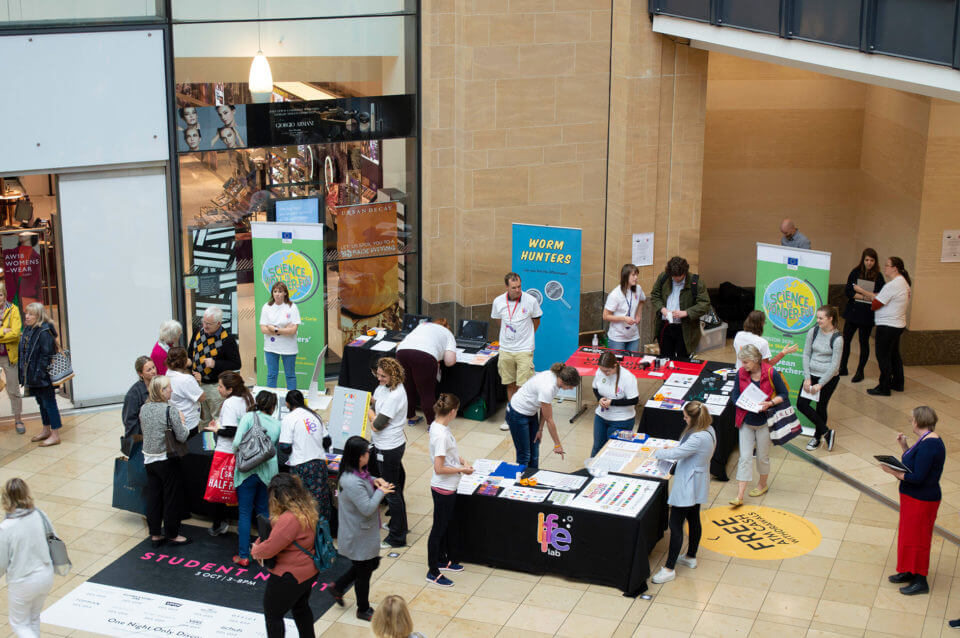
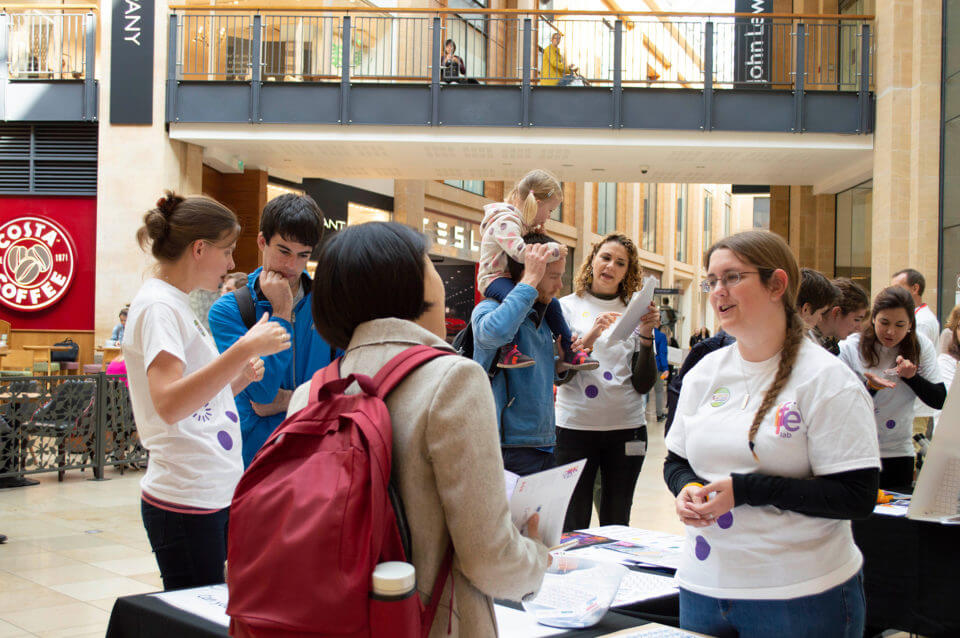
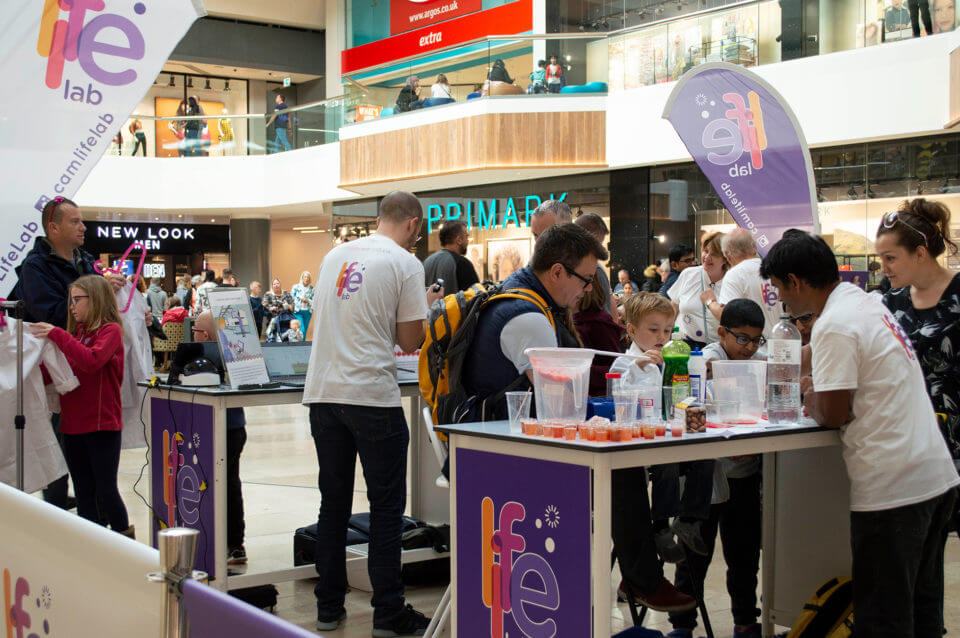
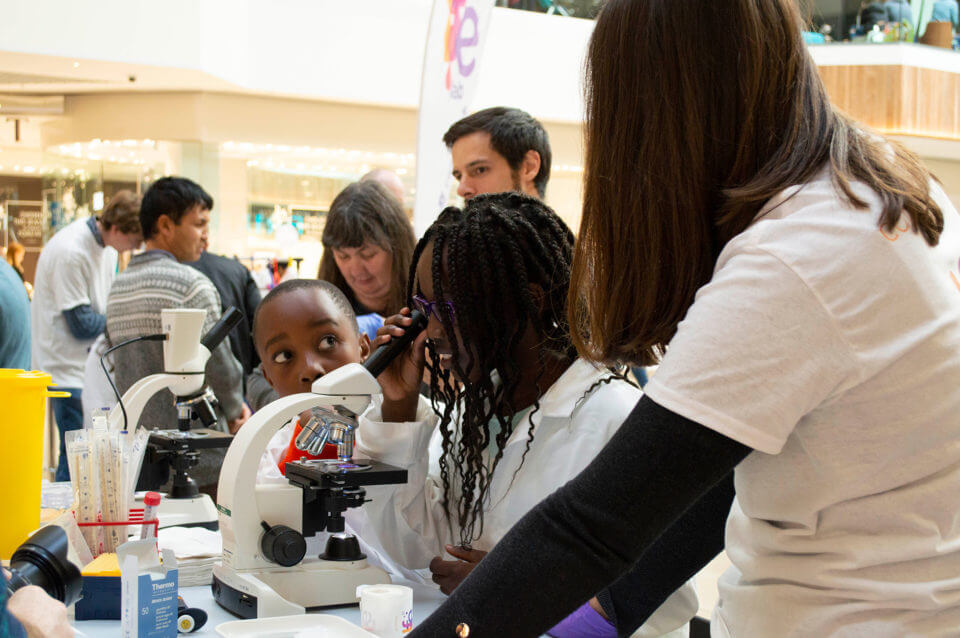

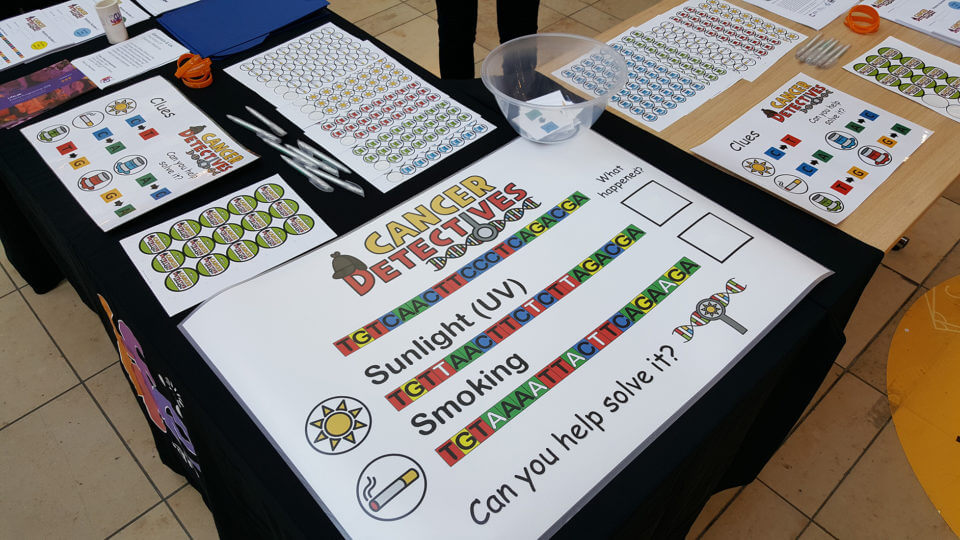

“ I had a fantastic time on Saturday and hopefully we have inspired a few budding scientist in the audience, I couldn’t get over how excited some of them were and so keen to learn. The feedback from some of the parents was great and several people were asking me how we can do this for their children’s schools and their community mosques
Rachel Nelson, Head of Cellular Generation and Phenotyping, Wellcome Sanger Institute
LibraryLab for families

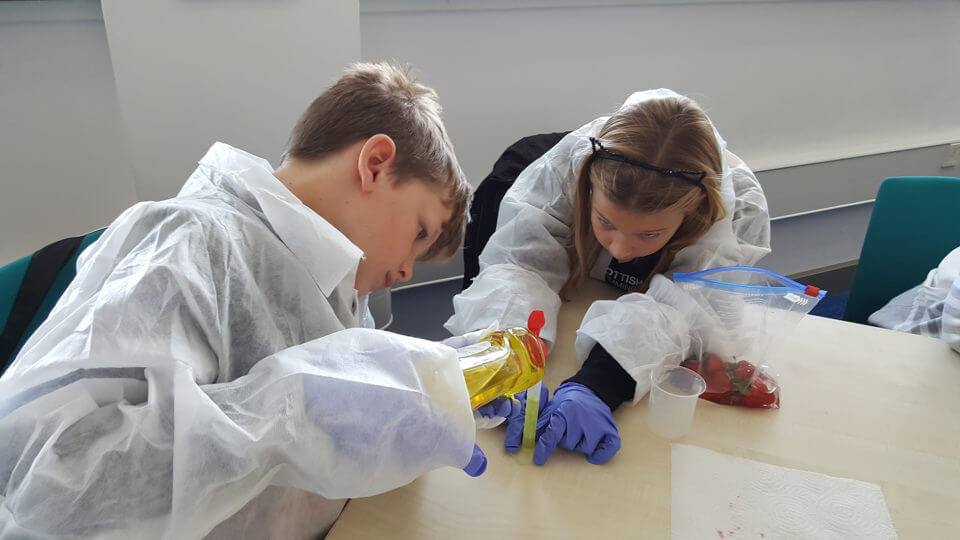
There was also a wide of range of events throughout the evening of the 28th September: science and technology comedy with The Variables, informal presentations with plenty of chances for questions and interactions with researchers around coffees, or pizza and drinks, and a panel debate in one of the University’s lecture theatres.
Evening events
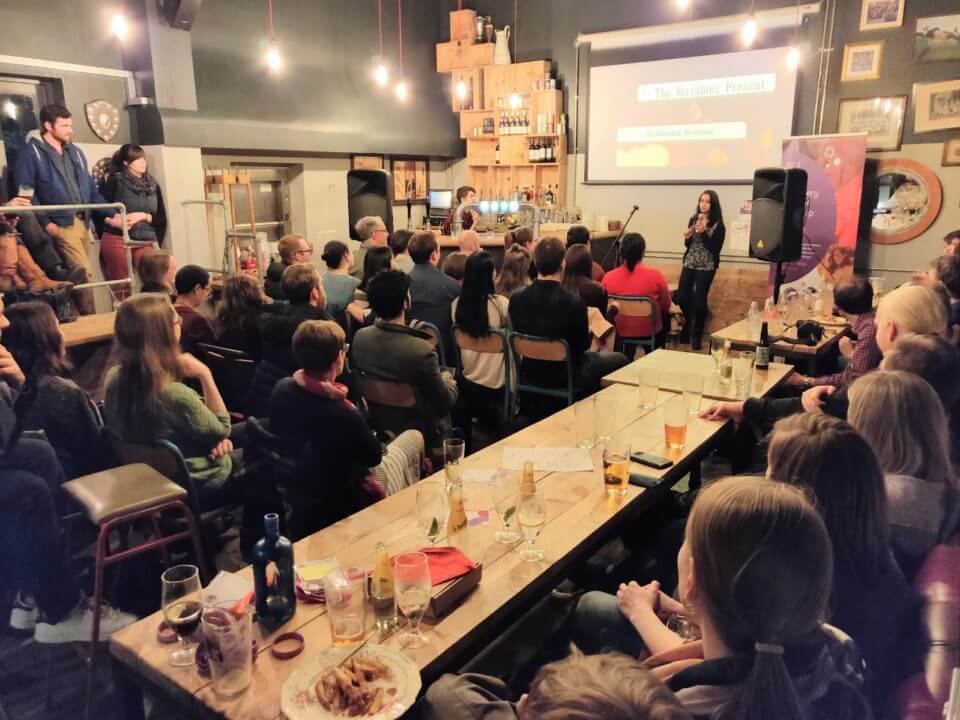



And there were even outdoors events too! Science in the Square in Peterborough benefited from the sunshine enticing people out on the streets (and into the science stalls) and the Culture Crawl tours uncovering Cambridge’s best-kept scientific secrets were all fully booked.
Outdoors events
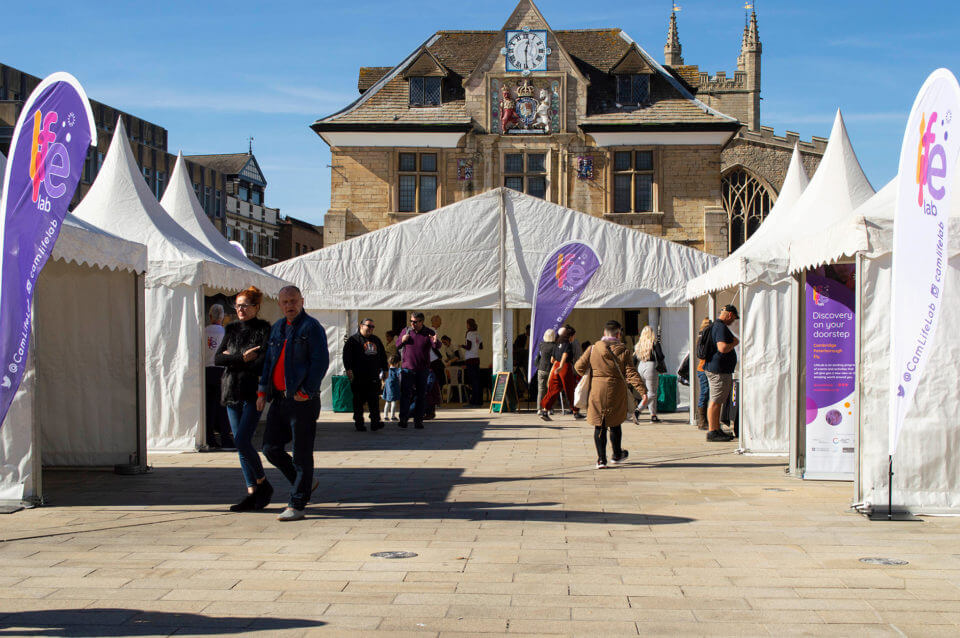
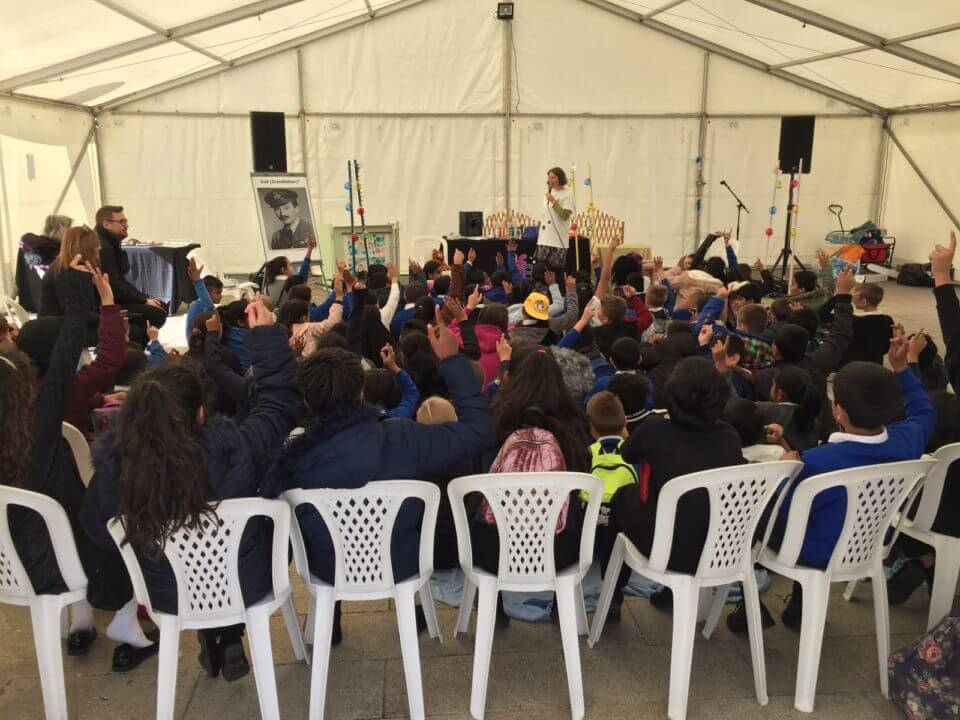
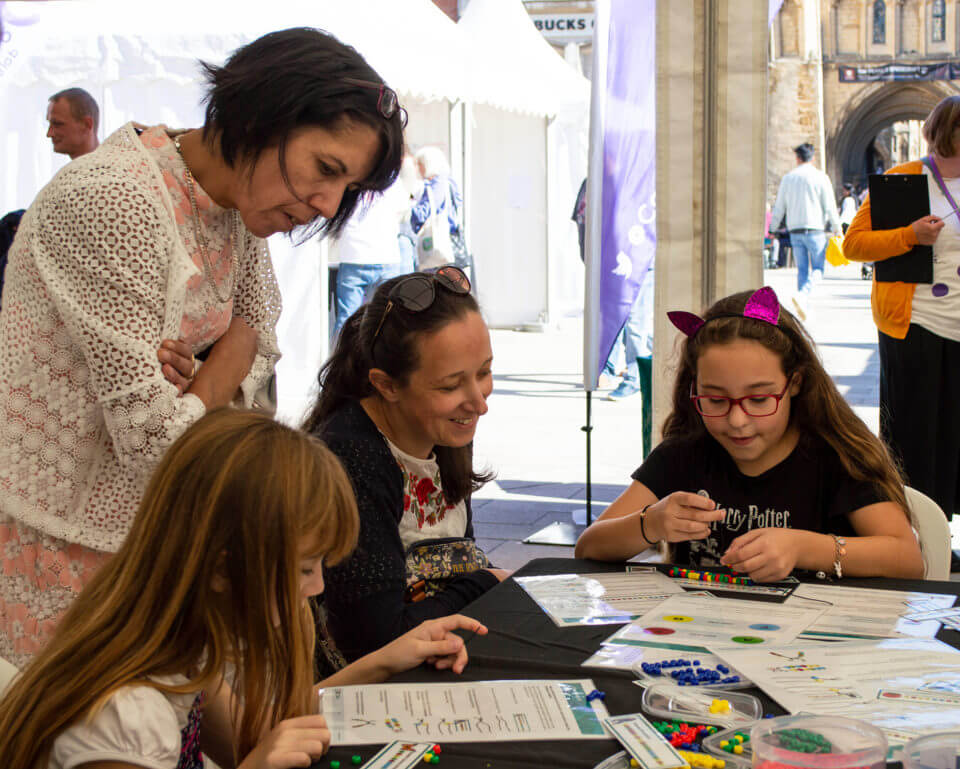
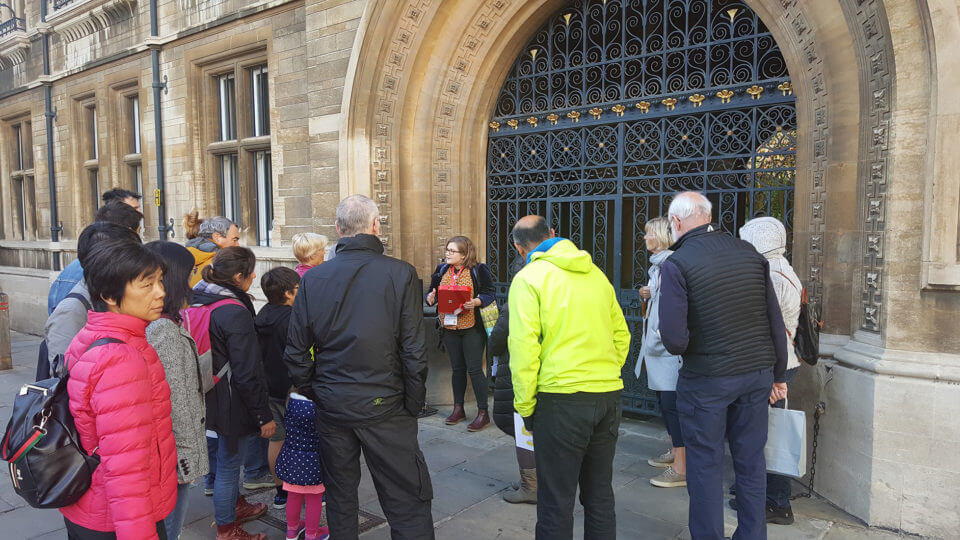
In the run up to the weekend, researchers also visited schools in North Cambridgeshire and parts of Norfolk with LifeLab for Schools, aiming to inspire school students throughout the region to make discoveries about the living world, as well as looking at the career options that a job in science entails.
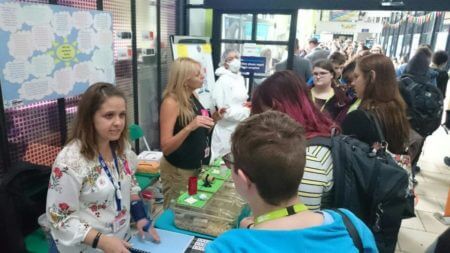
The experience was a rewarding one for the researchers involved, and a catalyst for local organisations to work together on a joint public event. LifeLab organisers were able to work with partners such as Cambridge Central Library, Cambridge Science Festival, The Variables comedy group, as well as multiple venues, successfully bringing together many people – public, researchers, and cultural institutions – for the weekend.
And it’s not over! LifeLab will return to Cambridgeshire at the same time next year, with events in Cambridge, Peterborough and Ely.
Keep an eye on camlifelab.co.uk for more information.
“ LifeLab has made me realise that there are so many fields open for discovery in science that I wish I had taken this path myself